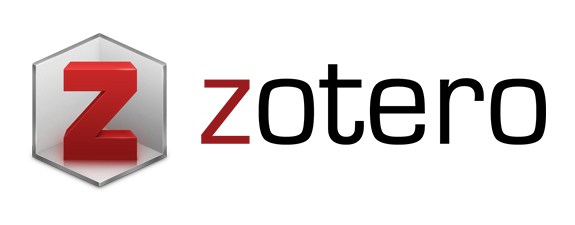Penerapan Pembelajaran STEAM (Science, Technology, Engineering, Arts, Mathematics)
Keywords:
Collaboration, Creativity, Learning, STEAM, StudentsAbstract
This study aims to describe the implementation of STEAM (Science, Technology, Engineering, Arts, Mathematics) learning in elementary schools and its impact on student engagement and competencies. The research uses a qualitative approach with a case study design. The subjects of the study were classroom teachers and students in an elementary school, while the object was the implementation of STEAM-based learning. Data were collected through observation, interviews, and documentation. The data were analyzed using thematic analysis to identify significant patterns in STEAM implementation. The results show that the STEAM approach promotes more active, creative, and collaborative learning. Students demonstrate improved conceptual understanding, critical thinking, and problem-solving skills. Teachers also experienced growth in designing integrative learning strategies. In conclusion, STEAM learning is effectively implemented in elementary schools to enhance learning quality and 21st-century competencies.
References
Erawan, G. M., Mariana, N., & Suryanti. (2024). Development and Challenges of STEAM Learning Implementation in Elementary Schools: A Comprehensive Literature Review. International Journal of Emerging Research and Review, 3(1). https://doi.org/10.56707/ijoerar.v3i1.94
Fatmawati, R. D., & Mariana, N. (2022). Penerapan Pembelajaran STEAM Melalui Aktivitas Make a Non Stop Fountain untuk Meningkatkan Kreativitas Siswa di Sekolah Dasar. Jurnal Penelitian Pendidikan Guru Sekolah Dasar, 10(6). https://ejournal.unesa.ac.id/index.php/jurnal-penelitian-pgsd/article/view/47109
Kartikasari, K., Usman, H., Suminar, R. R., & Nuryani, N. (2023). Meningkatkan Hasil Belajar Matematika dengan Pendekatan STEAM di Sekolah Dasar. Jurnal Pendidikan dan Kebudayaan (JURDIKBUD), 2(3). https://doi.org/10.55606/jurdikbud.v2i3.731
Khoiriya, R. M., Oktarianto, M. L., & Rohmiati, D. P. (2023). Implementation of the STEAM Approach in Science Education to Enhance Critical Thinking Skills and Scientific Literacy of IV Grade Students at Anak Saleh Elementary School Malang. Journal of Teaching in Elementary Education, 7(2), 142–147. http://dx.doi.org/10.30587/jtiee.v7i2.7482
Lestari, P. A. (2022). Pengaruh Pendekatan STEAM (Science, Technology, Engineering, Art, Mathematics) terhadap Keterampilan Berpikir Kritis dalam Pembelajaran IPA di SD. Universitas Pendidikan Indonesia.
Mardlotillah, A. N., Suhartono, & Dimyati. (2022). Pengaruh Pembelajaran STEAM terhadap Keterampilan Berpikir Tingkat Tinggi pada Siswa Kelas V MI Hidayatul Mubtadi'in Jagalempeni. Jurnal JPSD, 7(2).
Mardlotillah, A. N., Suhartono, S., & Dimyati, D. (2022). Pengaruh Pembelajaran STEAM terhadap Keterampilan Berpikir Tingkat Tinggi pada Siswa Kelas V MI Hidayatul Mubtadi'in Jagalempeni. Jurnal JPSD (Jurnal Pendidikan Sekolah Dasar), 7(2). https://doi.org/10.26555/jpsd.v7i2.a17280
Mustoip, S., Lestari, D., & Purwati, R. (2023). Implementation of STEAM Learning Methods to Develop Collaborative and Creative Characters of Elementary School Students. JPS: Journal of Primary School, 2(1). https://journal.pusmedia.com/index.php/JPS/article/view/103
Nasrah, N. (2021). Efektivitas Model Pembelajaran STEAM (Science, Technology, Engineering, Art, and Mathematics) pada Siswa Kelas IV SD. JKPD (Jurnal Kajian Pendidikan Dasar), 6(1).
Nasrah, N. (2021). Efektivitas Model Pembelajaran STEAM pada Siswa Kelas IV SD. JKPD (Jurnal Kajian Pendidikan Dasar), 6(1). https://doi.org/10.26618/jkpd.v6i1.4166
Nuragnia, B., Nadiroh, & Usman, H. (2021). Pembelajaran STEAM di Sekolah Dasar: Implementasi dan Tantangan. Jurnal Pendidikan dan Kebudayaan, 6(2), 187–197.
Nuragnia, B., Nadiroh, & Usman, H. (2021). Pembelajaran STEAM di Sekolah Dasar: Implementasi dan Tantangan. Jurnal Pendidikan dan Kebudayaan, 6(2), 187–197. https://doi.org/10.24832/jpnk.v6i2.2388
Rahmawati, N. A. (2023). Penerapan Pembelajaran STEAM Proyek Mobil Tenaga Angin untuk Meningkatkan Keterampilan Berpikir Kritis Siswa SD. Jurnal Penelitian Pendidikan Guru Sekolah Dasar, 11(5). https://ejournal.unesa.ac.id/index.php/jurnal-penelitian-pgsd/article/view/53322
Rakhmawati, E., Riniati, W. O., Badriyah, B., & Irmawati, I. (2023). Implementasi Pembelajaran STEAM pada Kelas Rendah
Ranak, L., Rustam, & Ero, P. E. L. (2023). Evaluation and Effects of STEAM-PBL on Mathematics Interest and Numeracy Skills on Elementary School. Jurnal Riset Pendidikan Matematika, 10(2). https://journal.uny.ac.id/index.php/jrpm/article/view/67251
Ratnasari, R., Utami, K., Rahayu, D., Karlimah, & Saputra, E. R. (2023). Pengembangan Activity Book Berbasis STEAM sebagai Media Pembelajaran Abad 21 di Kelas 1 SD. ELSE (Elementary School Education Journal), 7(1), 81–87. https://doi.org/10.30651/else.v7i1.13673
Riyanti, E. D., Roshayati, F., & Purnamasari, V. (2020). The Profile of Elementary Teachers’ Understanding in STEAM (Science, Technology, Engineering, Art, and Mathematics) Approach. Jurnal Ilmiah Sekolah Dasar, 4(4). https://doi.org/10.23887/jisd.v4i4.27340
Downloads
Published
How to Cite
Issue
Section
License
Copyright (c) 2025 Al-Mafahim: Jurnal Pendidikan Guru Madrasah Ibtidaiyah

This work is licensed under a Creative Commons Attribution-NonCommercial-ShareAlike 4.0 International License.










